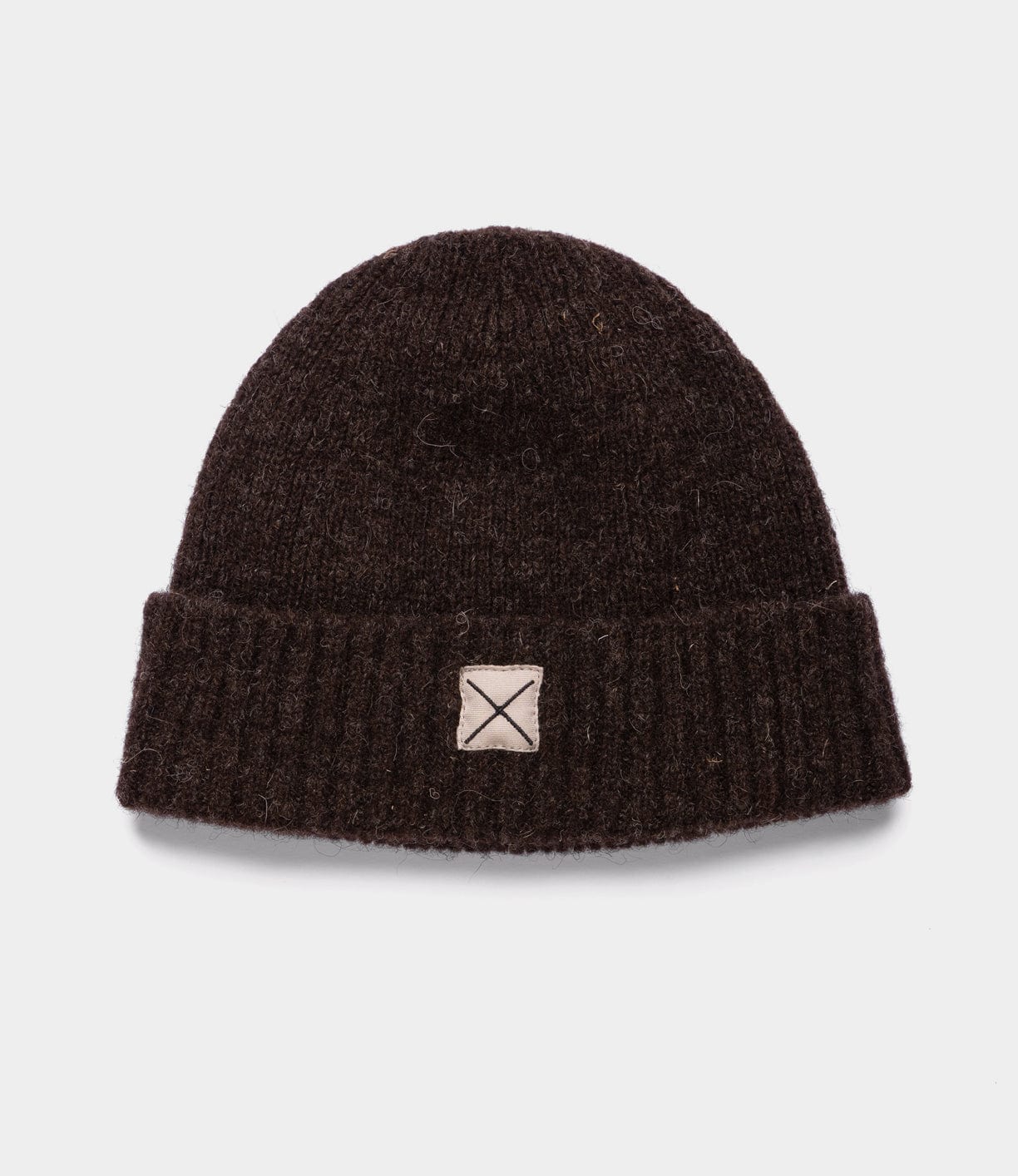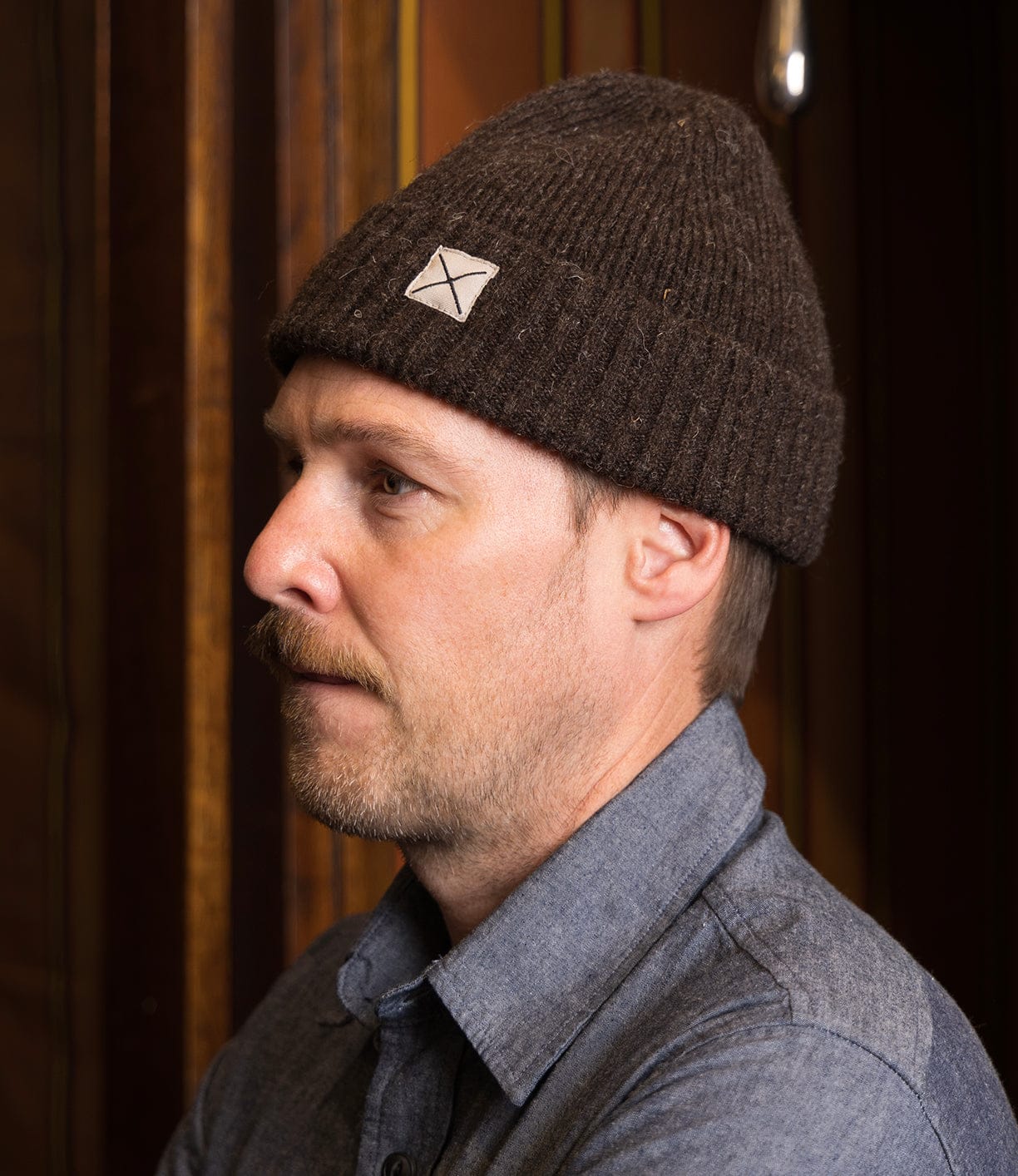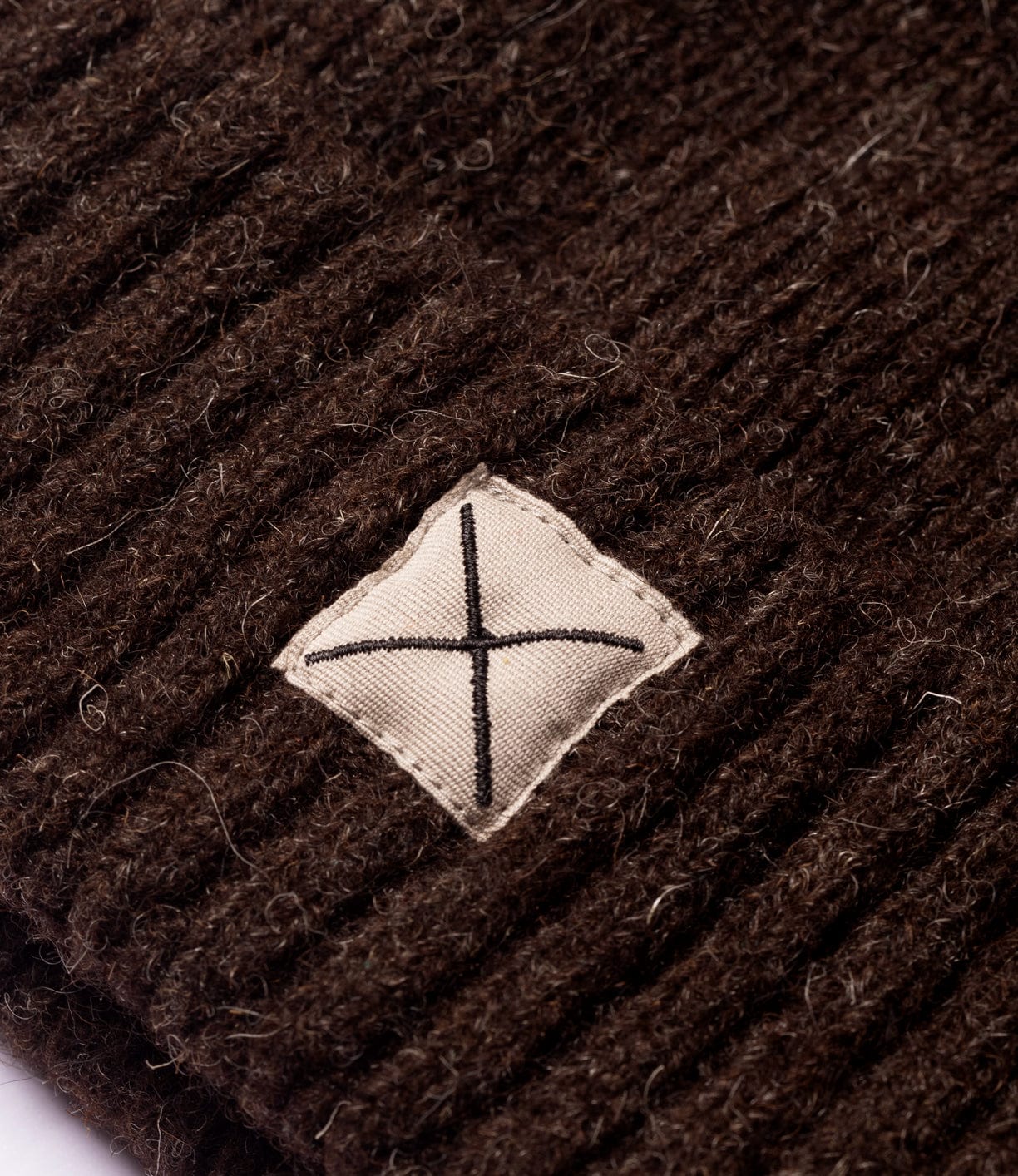


Shetland wool comes from sheep bred for centuries in Scotland's harsh northern climate, where they developed fleece with exceptional warmth-to-weight ratio and natural water resistance. The fiber's crimped structure traps air more effectively than smoother wools, creating insulation without bulk. Unlike merino or lambswool, Shetland maintains a slightly coarser hand that speaks to its working heritage—this texture contributes directly to the wool's legendary durability and weather protection. The undyed fiber retains its natural lanolin, enhancing water resistance and reducing the need for frequent washing. Colors range from cream to grey to dark brown, reflecting the sheep and season, with subtle variations that make each cap distinct.
J.C. Rennie & Co., established in 1792, is one of the last woollen mills still operating in Scotland and among the few that perfected Shetland spinning on the Scottish mainland. Their Aberdeenshire facility uses the woollen system—a process fundamentally different from modern worsted spinning and largely unchanged since the Industrial Revolution. This traditional method produces a loftier, more resilient yarn with better insulating properties. Where most contemporary manufacturers have moved to faster, more automated systems, Rennie continues the slower woollen process that made Scottish textiles renowned worldwide. The mill represents an unbroken thread of craft knowledge spanning two centuries, and their survival ensures techniques developed over generations remain in practice rather than memory.
J.C. Rennie & Co., established in 1792, is one of the last woollen mills still operating in Scotland and among the few that perfected Shetland spinning on the Scottish mainland. Their Aberdeenshire facility uses the woollen system—a process fundamentally different from modern worsted spinning and largely unchanged since the Industrial Revolution. This traditional method produces a loftier, more resilient yarn with better insulating properties. Where most contemporary manufacturers have moved to faster, more automated systems, Rennie continues the slower woollen process that made Scottish textiles renowned worldwide. The mill represents an unbroken thread of craft knowledge spanning two centuries, and their survival ensures techniques developed over generations remain in practice rather than memory.
100% Shetland Wool
One size fits all
Hand wash in cool water with a wool-specific detergent. Gently squeeze out excess water—never wring or twist. Lay flat to dry away from direct heat or sunlight. The Shetland wool's natural lanolin content means it requires less frequent washing than other fibers. Between washes, air the cap outdoors to refresh it naturally. Store flat or loosely folded during warmer months. If pilling occurs with initial wear, remove gently with a sweater comb or stone. The cap will soften slightly over time while maintaining its robust character and water-resistant properties.
Made in the USA


